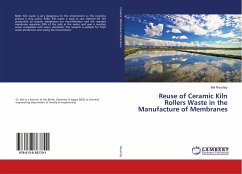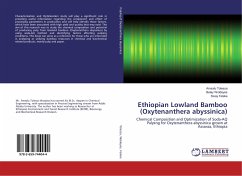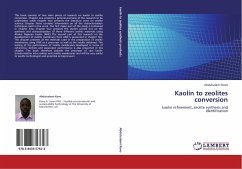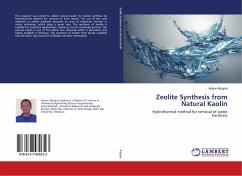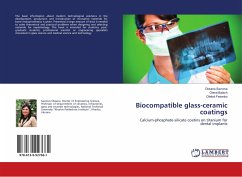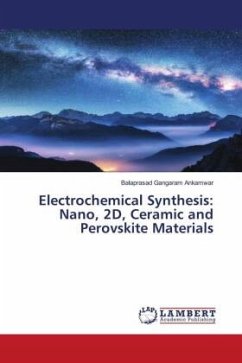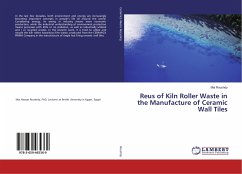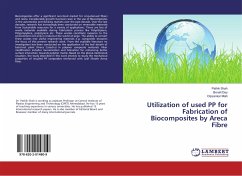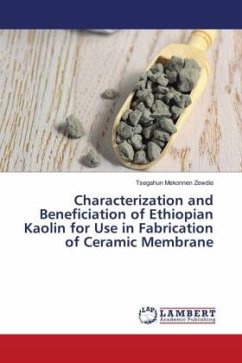
Characterization and Beneficiation of Ethiopian Kaolin for Use in Fabrication of Ceramic Membrane
Versandkostenfrei!
Versandfertig in 6-10 Tagen
29,99 €
inkl. MwSt.

PAYBACK Punkte
15 °P sammeln!
This study is concerned with the beneficiation and characterization of Ethiopian kaolin for ceramic membrane fabrication. As compared to polymeric microporous membranes, ceramic microporous membranes can resist severe environments due to their high thermal stability, high chemical stability, excellent mechanical strength, biocompatibility, long lifetime, energy efficiency, availability, and sustainability. These outstanding properties made inorganic microporous membranes a primary candidate to be used for water purification and desalination applications.The use of low-cost ceramic membranes an...
This study is concerned with the beneficiation and characterization of Ethiopian kaolin for ceramic membrane fabrication. As compared to polymeric microporous membranes, ceramic microporous membranes can resist severe environments due to their high thermal stability, high chemical stability, excellent mechanical strength, biocompatibility, long lifetime, energy efficiency, availability, and sustainability. These outstanding properties made inorganic microporous membranes a primary candidate to be used for water purification and desalination applications.The use of low-cost ceramic membranes and the ease of construction at a small scale, make membrane-based separation technology attractive for grid-independent desalination where low-cost heat sources (low-grade waste heat, geothermal energy, and solar energy) are readily available. Recently, the major research in membrane technology is developing high-performance ceramic membranes from local inexpensive raw materials such as kaolin, ball clay, bentonite clay, quartz, bauxite, and others.



